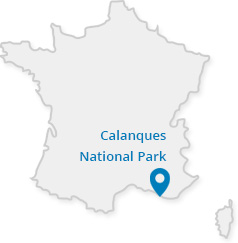"À l’école des Calanques" Programme
The programme À l’école des Calanques (At the Calanques School) is led in partnership with the environmental education, culture and social development department of the Calanques National Park and the Regional Education Authority's Maths/Science mission. Primary school teachers of classes CM1 and CM2 (age 9-11) located near the National Park are encouraged to engage with their students in a programme of education about the park, its environment and its heritage..
The National Park offers free educational support over a school year, provided by the supervisory wardens. Twenty clases are supported each year. The education programme includes a classroom intervention and a field trip in the National Park.
The 2020/2021 call for projects is now closed. The selection of the 20 classes who will be part of the programme this year took place on Thursday 24 September 2020. A new call for projects for the school year 2021/2022 was launched by the Regional Education Authority in late May 2021.
The National Park is offering classes who are not eligible for the À l’école des Calanques call for projects to contact:
- Éducalanques organisations,
- our partner guides with Esprit Parc National status. During their discovery outings, they undertake to:
- share their knowledge of the area so that as many people as possible can take advantage of its riches,
- propose discovery practices that respect the heritage of the Calanques,
- raise awareness of preservation issues among customers,
- raise awareness of the National Park's missions and actions, etc.
Educational areas
Managing a natural area
First created in 2012 in the Marquesas Islands, educational areas allow students and their teachers to manage a small coastal or land area in a participatory manner. This educational and eco-citizen approach aims to raise awareness among young people about the protection of the natural environment, but also to allow them to meet the people involved in its protection.
By "appropriating" a small natural area whose participative management they will orchestrate, pupils in the classes CM1, CM2 and 6e (ages 9-12) develop, along with their teacher, a project based on knowledge and protection of the coastal, marine or terrestrial environment. This process is carried out in direct contact with the main participants in these environments:
- fishermen and other sea-related occupations,
- various users of the site,
- local authorities,
- scientists,
- organisations working to protect the environment...
In the Calanques
In 2017/2018, the Calanques National Park experimented with marine educational areas with two schools in La Ciotat. The educational interest of this project convinced new schools to join the adventure and the National Park now has seven schools working with marine educational areas, which are recognised by the French Office for Biodiversity, who has attributed a status to them:
- The marine educational area of Le Grand Mugel with Louis Marin school – La Ciotat
- The marine educational area of Le Petit Mugel with La Garde school – La Ciotat
- The marine educational area of Le Corton with Frédéric Mistral school – Cassis
- The marine educational area of Le Bains des Dames with Bonneveine 2 school – Marseille
- The marine educational area of Fausse Monnaie with La Roseraie school – Marseille
- The marine educational area of Le Frioul with Les Accoules school – Marseille
- The Hélène Dalmasso land-based educational area with Les Néréides school – Marseille
The educational area project is supported by a network of partners: The Calanques National Park, the Permanent centre for environmental initiatives on the Provençal Coast, Naturoscope, the maths-sciences departmental mission of the Bouches-du-Rhône regional educational authority and the towns of Marseille, Cassis and La Ciotat.
The National Park's supervisory wardens and the three communes' nature coordinators support the teacher on field trips, in exploring the environment and its key players, and act as the link with the territory. The pupils' programme includes:
- setting up a children's council for the sea and the land,
- carrying out an inventory of the site,
- acquisition of knowledge,
- reflection on the issues and objectives of their marine educational area,
- the implementation of actions.
Children from La Garde school are studying the marine environment in the Marine Educational Area during snorkelling trips, accompanied by instructors from Atelier Bleu.
Commitment Charter
The students and their teacher manage their marine educational area following the principles laid out in the charter.


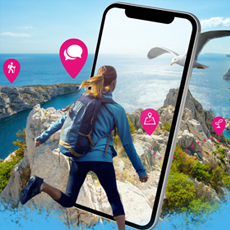

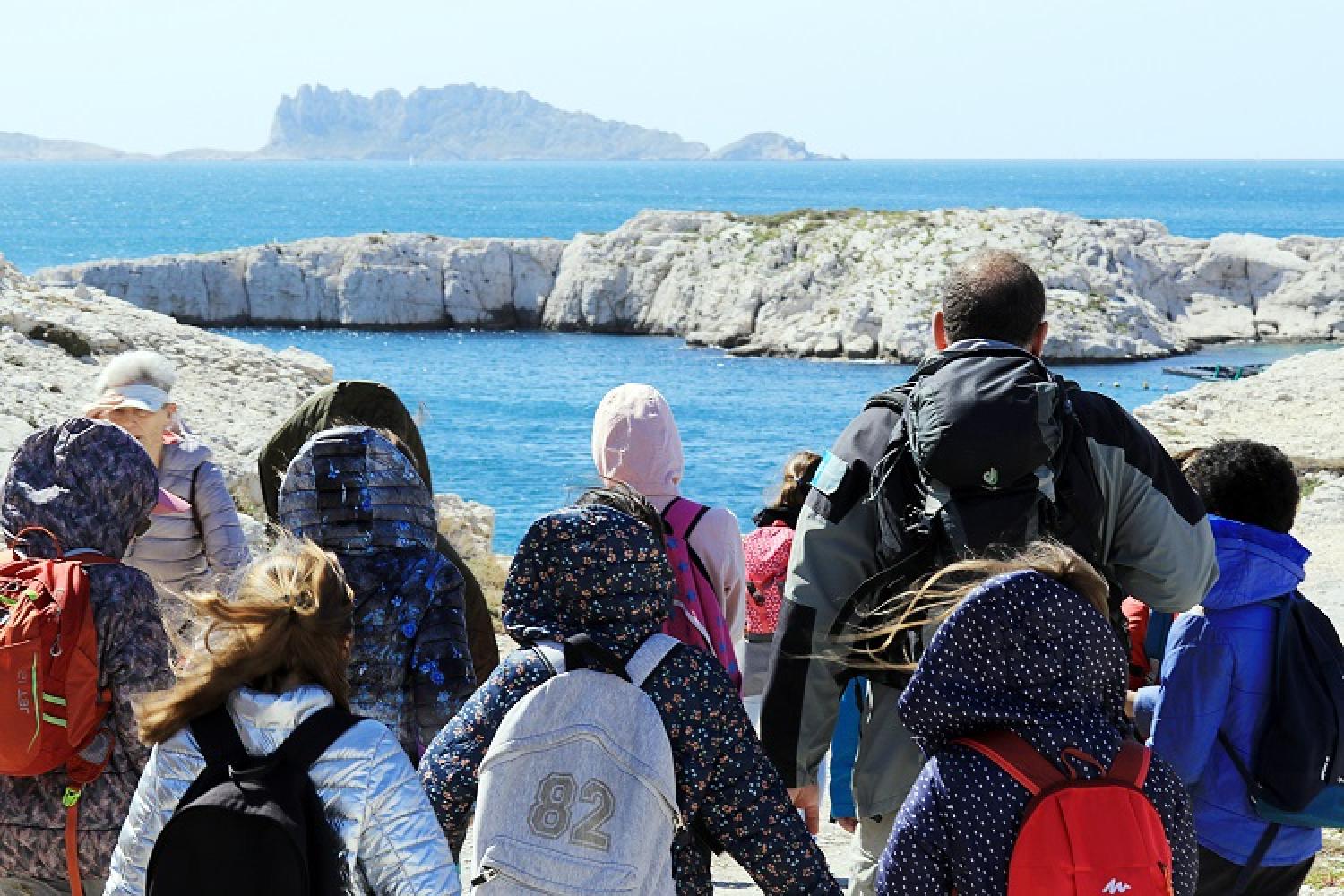
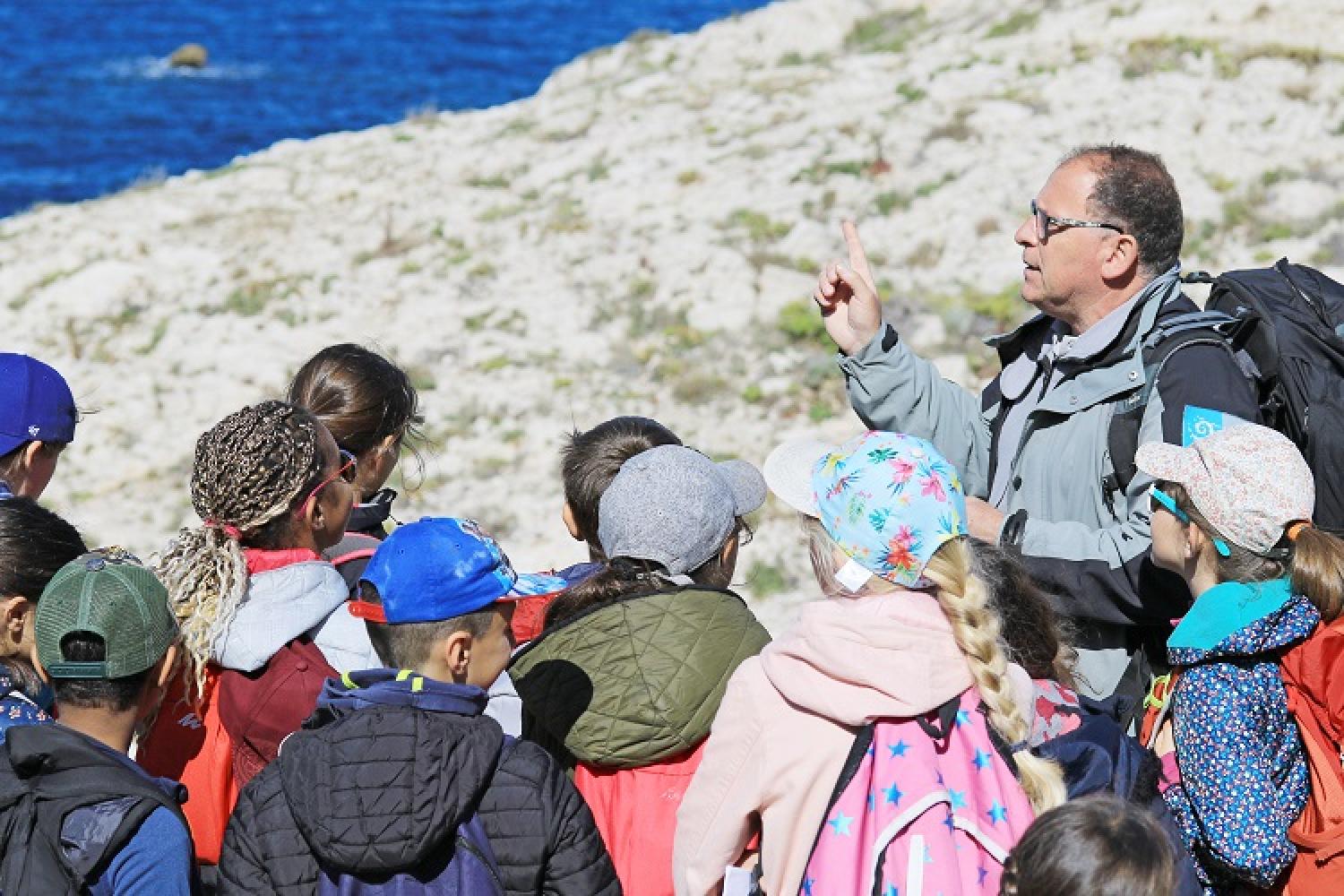
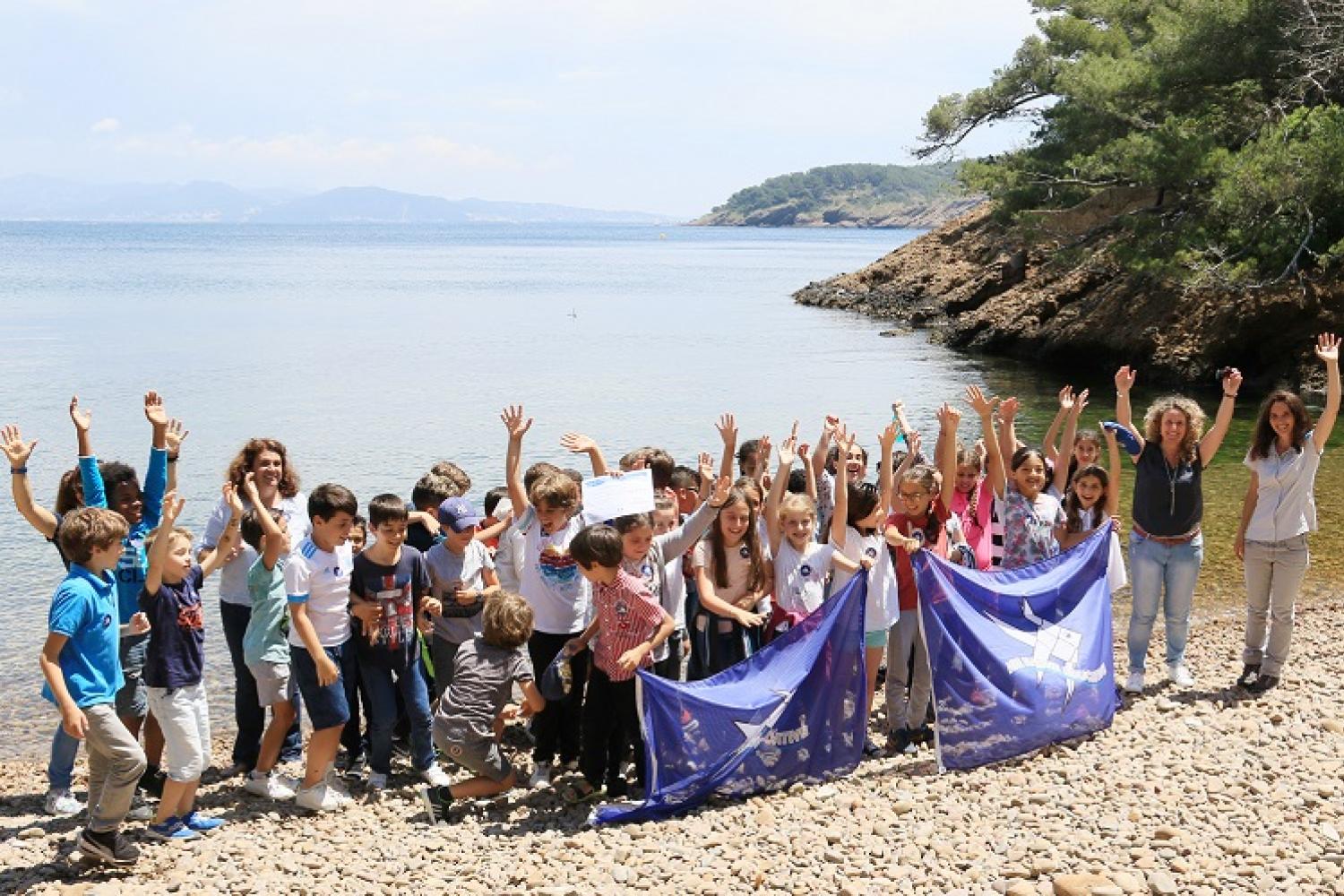
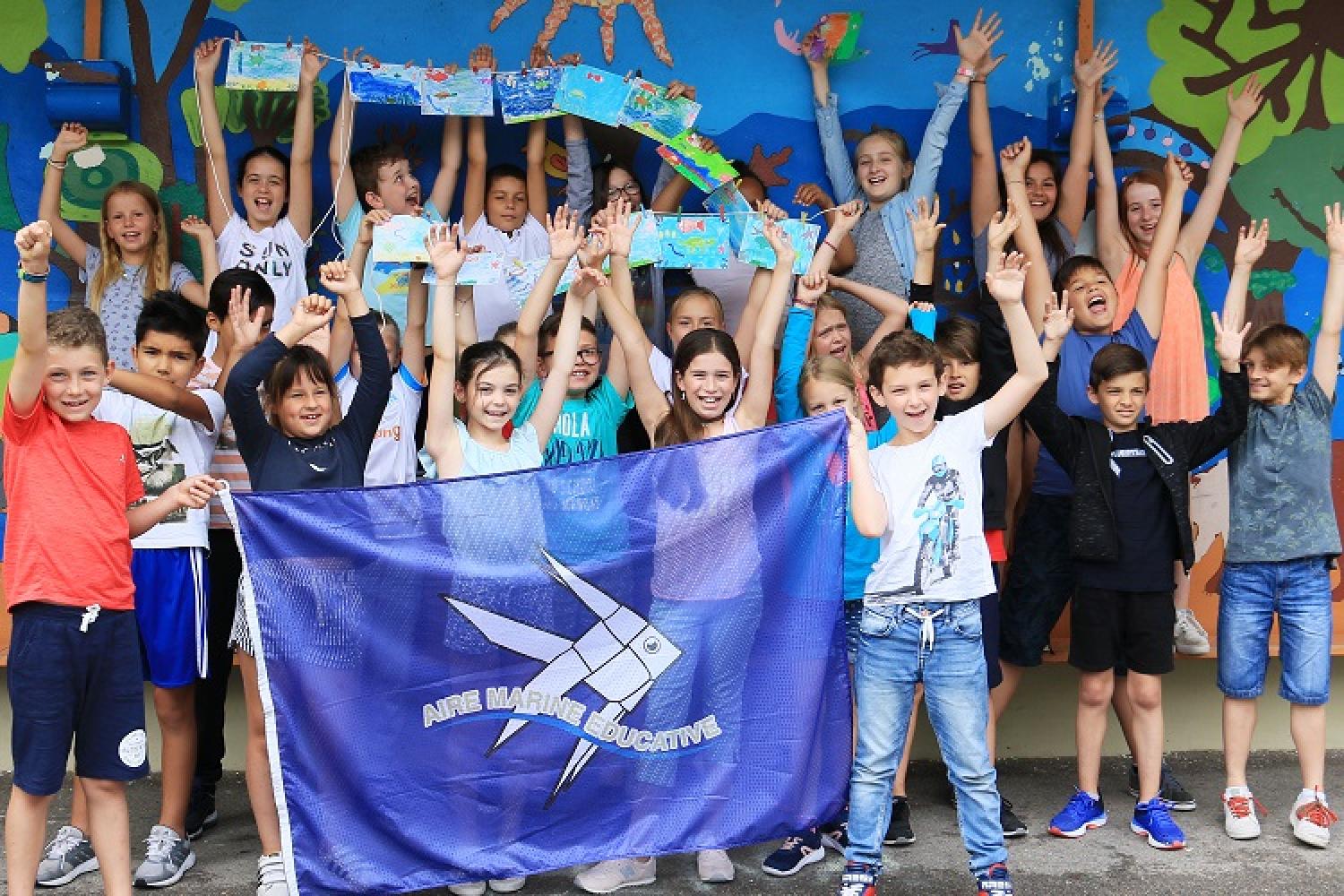
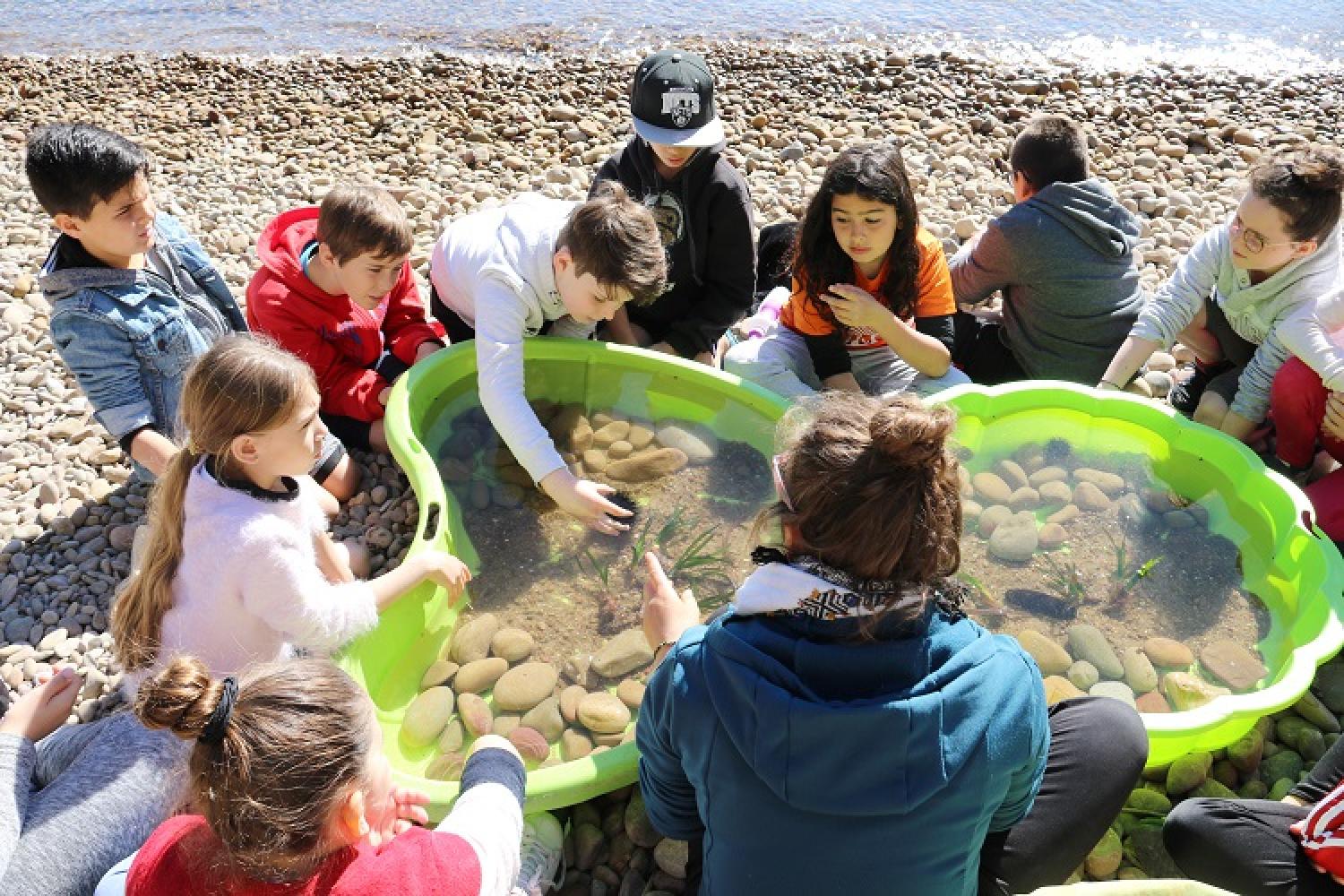
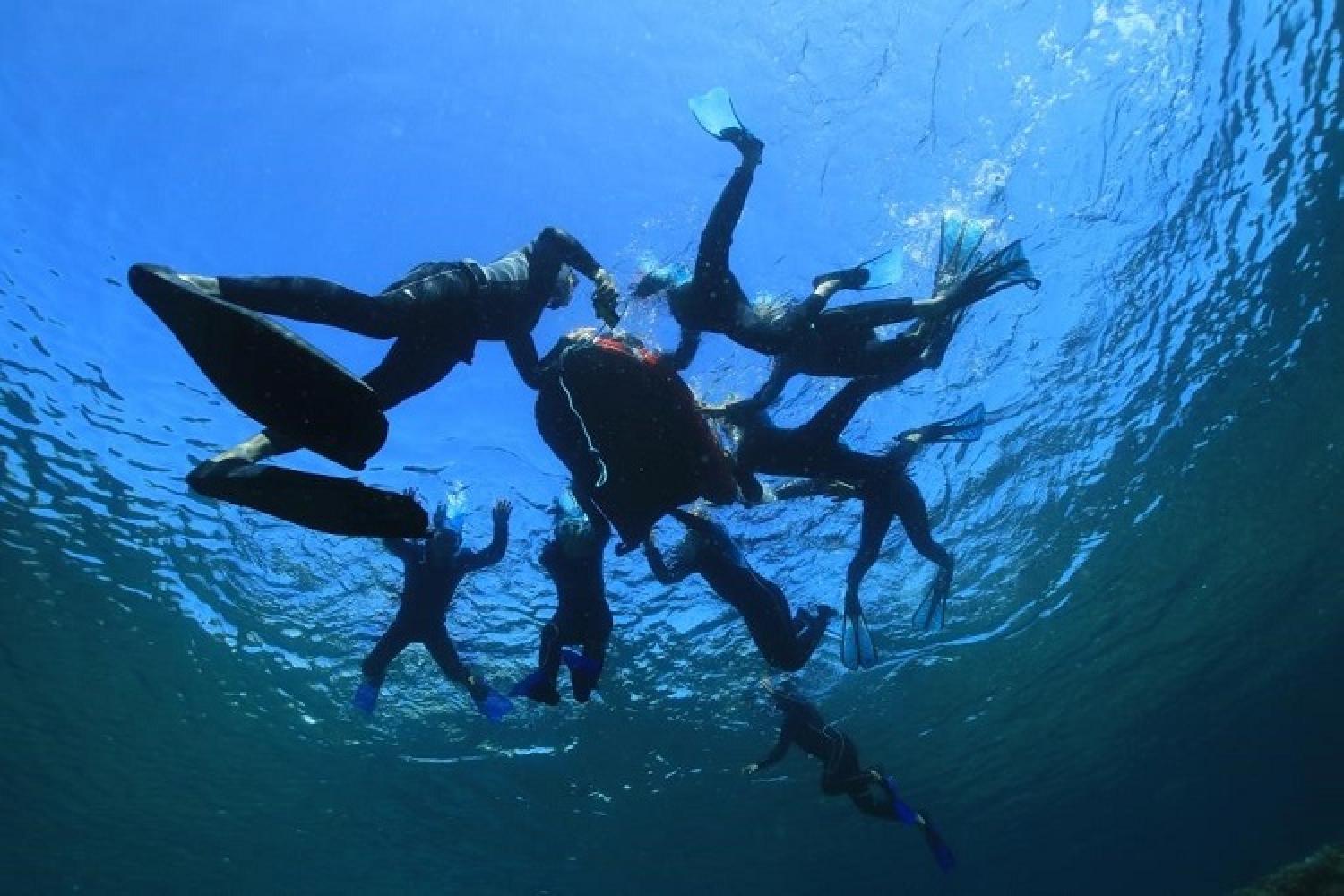
 Links
Links